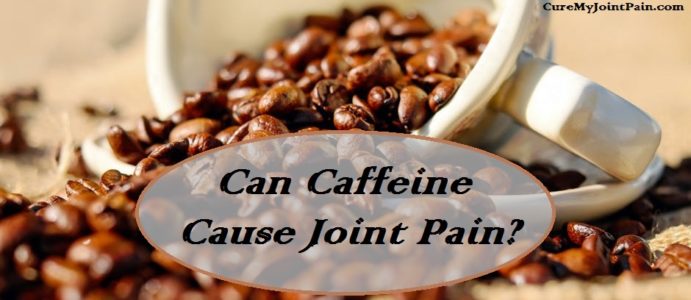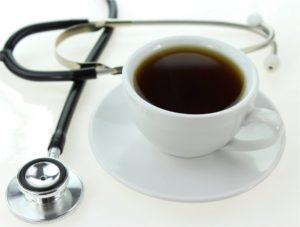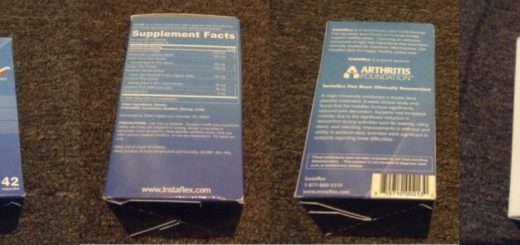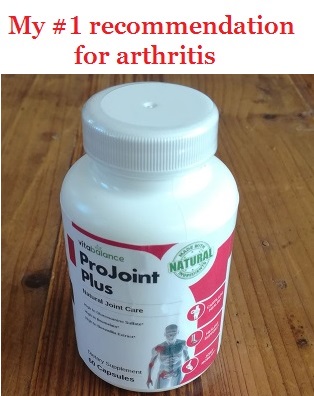Can Caffeine Cause Joint Pain? The Good And The Bad

Coffee is probably the best drug in the world. It can change your mood so easily, and yet it’s so addictive. But I’ve been asked many times if coffee has anything to do with chronic pain.
So can caffeine cause joint pain itself? Or can it be a factor that worsen the exisiting pain? Is there any connection between chronic pain and the consumption of coffee?
I’ve been trying to find a clear answer to these questions, but I haven’t found any practical conclusion anywhere on the internet. For this reason, I want to do that myself. So let’s analyze several points of view and find the real answer to this question.
THE BAD
1. There’s A Link Between Coffee And Arthritis
 In the early 2000s, Finnish scientists conducted a study that terrified people around the world. According to their findings, consuming coffee everyday lead to an increased risk of developing arthritis.
In the early 2000s, Finnish scientists conducted a study that terrified people around the world. According to their findings, consuming coffee everyday lead to an increased risk of developing arthritis.
And we’re not talking about any type of arthritis, but about rheumatoid arthritis, which is one of the most severe forms. It’s an autoimmune disease, so your body is basically fighting against yourself.
The Real Fact: The reason that led to this conclusion is simple. High quantities of coffee lead to the development of an antibody called rheumatoid factor.
This substance usually appears in your blood a few years before the symptoms of rheumatoid arthritis. So once you have this antibody, there are high chances that you get this condition in the future.
It’s not a sure thing, but it increases your chances.
2. It Can Increase The Risk For Arthritis
The soon-became-famous study considered several risk factors associated with coffee. If you think logically, a healthy adult shouldn’t develop arthritis just from drinking too much coffee. It wouldn’t make any sense. He should have some other problems associated.
If you take any health issue, obesity and smoking are the most common risk factors. Obviously, they were also considered risky in these studies. But as we’re talking about RA, female gender is a risk factor for developing this condition.
The Real Fact: So judging after the results of the study, if you put together excessive coffee consumption, obesity and if you’re also a woman, you have much higher chances to get auto-immune arthritis in the future. Scientists also claim that this doesn’t happen in your adult life, but rather when you go beyond 50.
According to this, coffee and caffeine can’t really produce joint pain themselves, but they can increase the risk. That especially if they are associated with these dangerous factors.
But fortunately, it’s not all as bad as it seems…
THE GOOD
1. It’s Not Caffeine Behind The Risk
 After the study from 2000, scientists tried to find out what exact substance from coffee increases the risk of arthritis. Obviously, everybody thought it would be caffeine. It was the main component from coffee, so what else could it be?
After the study from 2000, scientists tried to find out what exact substance from coffee increases the risk of arthritis. Obviously, everybody thought it would be caffeine. It was the main component from coffee, so what else could it be?
The Real Fact: Surprisingly, it’s not caffeine. All the other studies that followed tested the effect of caffeine on the long term, and guess what? None proved that excess caffeine could lead to AR antibodies. So caffeine has nothing to do with arthritis, even on the long term.
So what else could it be? Well, scientists believe it’s diterpenes, some small compounds that are also found in coffee. These diterpenes increase bad cholesterol, so it’s very likely that they also increase the risk for arthritis.
Therefore, it’s not even caffeine that is related to joint pain. We don’t know yet what it is, but it’s surely not caffeine.
2. You Need So Much Coffee To Be In Danger
The finish study used some very clear parameters, and you will probably be very surprinsed when you hear them.
Even though caffeine isn’t related to joint pain or arthritis, let’s assume it is. Hypotetically speaking.
The Real Fact: According to the researchers, they studied the effect of coffee on patients who drank at least 11 cups per day. Do you have any idea what this means? Most avid coffee fans I know drink about 5 cups a day, and that doesn’t happen everyday. 11 cups is like drinking more coffee than water!
So consuming so much coffee daily is very unlikely. The patients probably did it for the study, because I doubt someone would drink so much coffee for pleasure. Besides, if you drink 11 cups daily, you have 99% chances to die of heart problems before you even develop arthritis.
3. There Are Other Risk Factors
 Just like I said before, coffee can’t lead to joint pain all alone. You also need to be an avid smoker, be overweight and probably over 50 in age.
Just like I said before, coffee can’t lead to joint pain all alone. You also need to be an avid smoker, be overweight and probably over 50 in age.
Now, when I say “an avid smoker” or “an avid coffee drinker” I don’t mean that you smoke one pack per day or that you drink 5 cups a day. I mean way more, in these conditions. Like smoking 2 packs and drinking 10 cups of coffee daily.
The Real Fact: Now you tell me one person that meets these 2 conditions. If you found one, add the obesity criteria and make sure that person is over 50. And even if you found one, there are still enough chances that that person never develops arthritis, just because of genetics.
So don’t worry too much about caffeine. It can’t do much on its own, because it has to be associated with some pretty rare risk factors.
4. It Can Bring Psychical Relief
The Real Fact: I may disagree with many scientists here, but I noticed that a lot of arthritis sufferers feel much better after they drink coffee. That’s exactly the opposite of what that study says, isn’t it?
Well, I’m not saying caffeine and coffee can bring relief, not at all. There are no proves for this, but I believe that it can bring psychical relief.
Let’s take a regular coffee drinker. What is the first thing he has at breakfast? It’s surely coffee. Hopefully, he also eats something, but I know many people who only have coffee alone. They can skip food, but they can’t skip coffee. Sounds familiar, doesn’t it?
Well, how does that person feel if he didn’t have his coffee in the morning? Not too good, with frustrating headaches and usually in a bad mood. But once he has coffee, everything seems fine.
And it’s exactly the same with joint pain sufferers, that’s why I believe coffee helps them relax and calm down. In my opinion, it’s one of the best cures for stress.
Therefore, Can Caffeine Cause Joint Pain?
 Short answer: By no means, because there is no real evidence that caffeine itself would produce joint pain or related conditions.
Short answer: By no means, because there is no real evidence that caffeine itself would produce joint pain or related conditions.
No scientist can contradict me when it comes to this, because there are no real profs.
In fact, relying on the studies we have so far, caffeine doesn’t even worsen joint pain.
Certain compounds from coffee can have something to do with auto-immune arthritis, but it’s impossible to develop this disease just because of drinking too much coffee. You have to meet other risk criteria, like obesity and over 50 in age. And even then, it’s still not very likely.
To conclude, there isn’t any real link between caffeine and coffee. That 2000 study was probably a coincidence, because all the other studies that followed never reached the same conclusions. And there were’t just a few.
But if you want to make an experiment, try giving up coffee for a week and see if you notice any improvement. But that will only work if you drink at least 5 cups a day, otherwise I guarantee there will be no difference.
So does coffee help you deal with your pain? Does it make it a bit more bearable or it has nothing to do with it? Let me know your answer in a comment and I will reach out to you.






I have chronic pain due to osteoarthritis and I try to avoid coffee whenever I can. I once read that it dehydrates the body, so the joints get weaker because of losing water. Normally, that would make the pain worse.
Is this affirmation true? It didn’t seem very trustworthy to me, but it’s quite logical. So I’ve been decreasing my intake of coffee in the last weeks. For now, no real difference. Do you think I have a reason to continue in this way or coffee has nothing to do with dehydrating the joints?
Hey Sylvian. I don’t know where you read that, but it’s only partially true. Coffee is indeed a diuretic, which is a substances the eliminates water from your body. However, its diuretic effects are minimal, so it won’t make you eliminate more water. So coffee can’t possibly dehydrate your body, that’s totally fake. I checked out several sources and all of them say the same thing.
Even if you consume lots of coffee daily, your joints won’t get dehydrated or lose any water. Only alcohol does that, and it’s not recommended in joint pain. So I fully understand why you didn’t feel any change after giving up coffee. And you probably won’t even feel one too soon. So on my opinion, you can get back to your regular intake because it can’t possibly harm you, especially since you have OA.